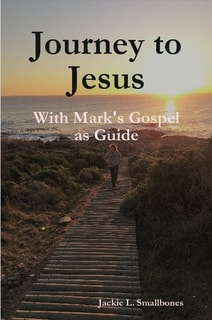|
Prepare to Listen. Light all the candles, including the white one. Glory to God in the highest, and on earth peace.
Prayerfully Read Luke 2:8-20 8In that region there were shepherds living in the fields, keeping watch over their flock by night. 9Then an angel of the Lord stood before them, and the glory of the Lord shone around them, and they were terrified. 10But the angel said to them, ‘Do not be afraid; for see—I am bringing you good news of great joy for all the people: 11to you is born this day in the city of David a Saviour, who is the Messiah, the Lord. 12This will be a sign for you: you will find a child wrapped in bands of cloth and lying in a manger.’ 13And suddenly there was with the angel a multitude of the heavenly host, praising God and saying, 14‘Glory to God in the highest heaven, and on earth peace among those whom he favours!’ 15When the angels had left them and gone into heaven, the shepherds said to one another, ‘Let us go now to Bethlehem and see this thing that has taken place, which the Lord has made known to us.’ 16So they went with haste and found Mary and Joseph, and the child lying in the manger. 17When they saw this, they made known what had been told them about this child; 18and all who heard it were amazed at what the shepherds told them. 19But Mary treasured all these words and pondered them in her heart. 20The shepherds returned, glorifying and praising God for all they had heard and seen, as it had been told them. Prayerfully Wonder We know the scene well. Jesus peacefully lying in a manger in a stable. Cattle soulfully looking at the sleeping baby [he’s always sleeping never crying in our scenes]. Shepherds arriving with a few sheep in tow. It’s familiar and, let’s be honest, sentimental and safe, demanding nothing from us. But that’s not the reaction Luke desired from readers. His story is subversive and demanding. It would have unsettled the political and religious rulers of that day. The Roman Emperor Augustus claimed to be savior, lord, and son of god. The angel’s announcement declared a change in ruler: “to you is born this day a Savior, who is Messiah, the Lord.” It’s not a message Rome wanted to hear. Do we? The shepherds, a marginalized and underprivileged group were the only ones to receive this subversive message. They symbolized the longing of the oppressed for a righteous ruler who would bring justice and peace (i.e., wellbeing) on earth. The birth of Jesus signaled a new Savior had come, one who was the only Lord, Messiah, King, and Son of God. The world order was radically altered forever. The rich and powerful would have their privileges and authority taken away and shared with the underprivileged masses. No human ruler, past or present, will save our land and make it great again, not even for the privileged few. The shepherds understood this and left their sheep on the hillside to see and worship their newborn King and Savior. Then, in joyful hope, they “returned, glorifying and praising God for all they had heard and seen.” Prayerfully Reflect Imagine being one of those shepherds and imagine how you’d feel on hearing the angel’s message. If you can, listen to Handel’s rendition of the angelic hosts singing Glory to God in the highest, and join in. Prayerfully Respond Lord Jesus, help me look beyond the sentimental and false aspects of your story to see the real you, the One in control of all the earth. I give up my trust in all human rulers to save my country and wait for you in obedience and trust and hope. Glory to you in the highest. Amen. Live obediently. Give glory to God and submit to Jesus the New Ruler.
0 Comments
Prepare to Listen. (If using, light all the purple and pink Advent candles.) Unto us a child is born, unto us a son is given.
Prayerfully Read Isaiah 9:6-7 6For a child has been born for us, a son given to us; authority rests upon his shoulders; and he is named Wonderful Counsellor, Mighty God, Everlasting Father, Prince of Peace. 7His authority shall grow continually, and there shall be endless peace for the throne of David and his kingdom. He will establish and uphold it with justice and with righteousness from this time onwards and for evermore. The zeal of the LORD of hosts will do this. Prayerfully Wonder A child is born, a son is given unto us. For Christians this “text decisively pertains to Jesus, who is the great light in darkness.”[1] It brings comfort and joy and assurance in these troubled times because “authority rests upon his shoulders.” Or, as in Handel’s version, “the government shall be upon his shoulders” (KJV). The child’s birth signifies a change in Ruler. Move over earthly kings and rulers. All authority to rule is now invested in the Son born unto us. Even his names, made familiar in Handel’s Messiah, underscore his power and authority. Jesus, the Messiah is the ultimate Ruler in charge of all creation, all people, all nations. His chief concerns, and what he came to establish on earth, are endless peace, justice and righteousness. These must be the chief concerns of all those who claim to follow Jesus. We must promote these principles for all peoples, not merely an elite few who share our beliefs. When we do we demonstrate to the world that we trust Jesus fully and submit to his decisions for our lives and world. Unto us Jesus, our Messiah came and keeps coming in our daily lives. Because authority rests on his shoulders, he can order the world according to God’s endless peace, justice and righteousness. Therefore, this Christmas Eve we rejoice and sing and trust the Lord. Prayerfully Reflect What caught your attention in these familiar words? Prayerfully Respond Lord, I desire to live in simple faith, trusting your decisions and rule, and not intervening with my own ideas. Amen. Live obediently. He came unto us to rule. Live in faith and don’t intervene. [1] Brueggemann, W. Isaiah 1-39. Louisville, KY: Westminster John Knox Press, 1998, p. 85. Prepare to Listen. The people who walked in darkness have seen a great light.
Prayerfully Read Isaiah 9:2-5 2The people who walked in darkness have seen a great light; those who lived in a land of deep darkness-- on them light has shined. 3You have multiplied the nation, you have increased its joy; they rejoice before you as with joy at the harvest, as people exult when dividing plunder. 4For the yoke of their burden, and the bar across their shoulders, the rod of their oppressor, you have broken as on the day of Midian. 5For all the boots of the tramping warriors and all the garments rolled in blood shall be burned as fuel for the fire. Prayerfully Wonder Failed leadership is an ancient and recurrent problem. We’re experiencing it today in the U.S. with a contentious government and divisive country. For Isaiah failed leadership was King Ahaz,[1] who failed to practice the justice and righteousness essential for a governance that is equitable and humane, one where social power is properly deployed.[2] Poor leadership results in the darkness of despair for all people. Only the true light, represented by a just and righteous ruler such as the Messiah, can dispel it. The prophet’s message gives hope to the oppressed, the aliens, the poor, the marginalized because, he says, they will see a great light. The darkness will be dispelled by a new King, the Messiah. He won’t, as John’s Gospel claims, be overcome by the darkness but instead will dispel it and thus be able to enlighten everyone (Jn 1:5, 9). Today we, the Church, read Isaiah’s prophecy through the lens of Jesus the Messiah. His coming “marks the decisive turn towards wellbeing.”[3] New leadership has arrived in Jesus, who has the power and the resolve to defeat and destroy all oppressive regimes, including our own, and restore order, justice, righteousness, truth for all peoples, not just our own. Prayerfully Reflect What surprised you and caught your attention in today’s reading? Prayerfully Respond Jesus you are the Great Light that dispels the darkness. Keep me walking in your Light no matter the cost to my comfort. Amen. Live obediently. Walk in and with the great Light, Jesus. [1] See 2 Chronicles 28:1-4 for a summary of his reign. [2] Brueggemann, W. Isaiah 1-39. Louisville, KY: Westminster John Knox Press, 1998, p. 84. [3] Ibid, p. 82. Prepare to Listen. How beautiful are the feet of those who bring good news!
Prayerfully Read Isaiah 52:7-10 7How beautiful upon the mountains are the feet of the messenger who announces peace, who brings good news, who announces salvation, who says to Zion, ‘Your God reigns.’ 8Listen! Your sentinels lift up their voices, together they sing for joy; for in plain sight they see the return of the LORD to Zion. 9Break forth together into singing, you ruins of Jerusalem; for the LORD has comforted his people, he has redeemed Jerusalem. 10The LORD has bared his holy arm before the eyes of all the nations; and all the ends of the earth shall see the salvation of our God. Prayerfully Wonder The way a messenger walks conveys whether the message is good or bad. A slow downcast walk suggests bad news, while a quick light walk indicates good news. And those who bring good news, says Isaiah, have beautiful feet. Paul agreed and quoted him (Rom 10:15, the source for Handel’s aria). The good news of peace and salvation, is possible because, “Your God reigns.” Not surprisingly, the theme of Jesus’ messianic teaching centers on God’s reign. He began his ministry announcing, “The time is fulfilled, and the kingdom [i.e., reign] of God has come near” (Mark 1:15). Now, not in some distant future, God has come near to establish God’s victorious rule over all creation, a rule that brings new hope and new possibilities. This is joyous good news and those who proclaim it have beautiful feet. Their joy is contagious, provoking songs of joy throughout the earth. God has comforted his people and powerfully redeemed them “before the eyes of all the nations; and all the ends of the earth shall see the salvation of our God.” The fulness of God’s victorious reign remains a future reality. However, we can live into that future by joyously proclaiming and acting out that our God, not some political ruler, reigns and is in total control. When we do, people will say we have beautiful feet. Prayerfully Reflect What would it mean for you to live in a way that others say you have beautiful feet? Prayerfully Respond Lord, may I be a messenger with beautiful feet proclaiming your good news by how I live, what I do, and in the causes I side with so that others may say I have beautiful feet. Amen. Live obediently. Be good news. Prepare to Listen. Listen to me, my people.
Prayerfully Read Isaiah 51:4-6 4Listen to me, my people, and give heed to me, my nation; for a teaching will go out from me, and my justice for a light to the peoples. 5I will bring near my deliverance swiftly, my salvation has gone out and my arms will rule the peoples; the coastlands wait for me, and for my arm they hope. 6Lift up your eyes to the heavens, and look at the earth beneath; for the heavens will vanish like smoke, the earth will wear out like a garment, and those who live on it will die like gnats; but my salvation will be for ever, and my deliverance will never be ended. Prayerfully Wonder When I was a child my parents often said to me, “Listen to me!” It usually meant I was in trouble and their listen meant obey. Yahweh’s Listen to me has the same sense, meaning “a readiness to be addressed and commanded, to have life ordered by Yahweh,”[1] so that we hear the LORD’s life-changing announcement about his saving initiative. Things were bad for the exiles in Babylon, to whom Jeremiah wrote. They questioned God’s presence and power to save them. They needed to hear, really hear about God’s promise of salvation, a deliverance that would be expansive and inclusive of all creation. God promised to swiftly bring near my deliverance, my arms (i.e., power), and my salvation, a new rule of justice for all. Therefore, listen. Listen to me, says the Lord, not to the voices of politicians, preachers, mass media that are too often fear-filled lies. What we listen to influences how we think and how we live. It becomes a meta-narrative, a big story that shapes us but often has little to do with the Story of Jesus, the good news of salvation for all, the Story we’re called to live. It takes discipline to refuse to be molded by mass media, social norms, cultural ideologies, and instead be molded by God as we obey God’s command: Listen to me. When we do, we’ll be transformed by God’s Story. Listen to me so that you “don’t let the world around you squeeze you into its own mould, but let God re-mould your minds from within.”[2] Prayerfully Reflect How can you practice a more attentive listening to Yahweh and be molded by him and not the false ideologies of the world? Prayerfully Respond Lord Jesus, you came as God’s salvation and deliverance, the one to bring in justice for all. Help me be more attentive to your Voice and resist being shaped by the many voices of my culture today. Amen. Live obediently. Listen to the Lord. [1] Brueggemann, Walter. A Commentary on Jeremiah. Grand Rapids, MI: William B. Eerdmans Publishing Company. 1998, p. 82. [2] J. B. Phillips’ translation of Romans 12:2. Prepare to Listen. Look to the rock from which you were hewn.
Prayerfully Read Isaiah 51:1-3 Listen to me, you that pursue righteousness, you that seek the LORD. Look to the rock from which you were hewn, and to the quarry from which you were dug. 2Look to Abraham your father and to Sarah who bore you; for he was but one when I called him, but I blessed him and made him many. 3For the LORD will comfort Zion; he will comfort all her waste places, and will make her wilderness like Eden, her desert like the garden of the LORD; joy and gladness will be found in her, thanksgiving and the voice of song. Prayerfully Wonder Listen. Look. Look. The commands are simple and urgent. Listen and look! Not the inattentive listening that hears superficially. Not the casual looking that fails to perceive. We live today in a culture that listens and looks half-heartedly. We hear words all the time and tune most of them out. We see something beautiful and click our cameras instead of standing and staring in awe and worship. The command to listen is directed at those who pursue righteousness and seek the LORD, that is, those who are serious about their faith and relationship with God. Then comes the two-fold command to look. Look to the rock from which you were hewn, and look to Abraham and Sarah. The exiles in Babylon needed to remember the foundation of their faith. God didn’t choose them because they obeyed God’s Word. We know they weren’t good at that. And, let’s face it, neither are we! They were chosen because of God’s grace. The promises of many descendants and being a blessing to the nations given to Abraham and Sarah were freely given, all of grace. Remembering their ancestors was ground for hope as chaos and loss surrounded them, the assurance that what God did then God can do again. And God hasn’t changed. We too, writes Brueggemann, “may now anticipate the same miracle from the same God,”[1] the miracle of free acceptance into God’s household. Prayerfully Reflect As we wait in anticipation for the celebration of Messiah’s coming and in hope for his coming again, pause to listen and look. You may be surprised. Prayerfully Respond Lord, help me to pause long enough to listen silently in order to hear and to look deeply in order to perceive. Amen. Live obediently. Listen and look deeply and patiently. [1] Brueggemann, W. Isaiah 40-66. Louisville, KY: Westminster John Knox Press, 1998, p. 126. Prepare to Listen. I am the LORD, your Holy One.
Prayerfully Read Isaiah 43:15-16A, 18-21 15I am the LORD, your Holy One, the Creator of Israel, your King. 16Thus says the LORD, …. 18Do not remember the former things, or consider the things of old. 19I am about to do a new thing; now it springs forth, do you not perceive it? I will make a way in the wilderness and rivers in the desert. 20The wild animals will honour me, the jackals and the ostriches; for I give water in the wilderness, rivers in the desert, to give drink to my chosen people, 21the people whom I formed for myself so that they might declare my praise. Prayerfully Wonder The exiles in Babylon were mostly from the privileged upper class, who’d lived the good life in Jerusalem and wanted it back. To them the LORD said, “Do not remember the former things.” If life had been good for them, it hadn’t been good for the masses, who struggled with poverty and oppression. The nostalgic longing of the wealthy for former things wouldn’t help the poor, but neither would it help the rich because “focus on the past keeps you from attending to the now.”[1] Therefore, God commanded, do not remember. Don’t remember because, says God, “I am about to do a new thing; now it springs forth, do you not perceive it?” No, they didn’t because they refused to relinquish their memory of an idealized past. Settled in despair in exile they looked back to days of prosperity and ease, entitlement and privilege. No, they couldn’t see the new thing God was already doing, and didn’t know, “If we do not perceive, we will not receive.”[2] The new was too unimagined, too surprising, too unfamiliar. We too long for the good old days. We want the U.S. to be ‘great again,’ and ‘take our country back.’ To us God says, ‘Do not remember the former times.’ God is doing a new thing. To perceive and receive it we must let go of the treasured old and resist being so “preoccupied with what is gone that we miss the new gifts of God by our facing backward.”[3] Messiah ushers in a surprising newness to be embraced in faith. If fear and insecurity make us cling to the past and refuse new possibilities, we’ll neither see nor be able to accept God’s new thing. Heed the prophet: do not remember former things. As Halík quipped, “you can’t enter the water that has already flowed away in the river of time.”[4] Prayerfully Reflect What do you need to relinquish in order to see God’s new thing? Prayerfully Respond Lord, help me resist clinging to the old so that I’m able to see and participate in the new that springs forth from you. Amen. Live obediently. Forget in order to remain open to receive God’s new thing. [1] Brueggemann, W. Tenacious Solidarity. Minneapolis, MN: Fortress Press. 2018, p. 185. [2] Brueggemann, 2018, p. 186. [3] Brueggemann, 2018, p. 189. [4] Halík, Tomáš. Patience With God. NY: New York: Doubleday. 2009, p. 111. Prepare to Listen. I will greatly rejoice in the LORD, my whole being shall exult in my God.
Prayerfully Read Isaiah 61:10-11 10I will greatly rejoice in the LORD, my whole being shall exult in my God; for he has clothed me with the garments of salvation, he has covered me with the robe of righteousness, as a bridegroom decks himself with a garland, and as a bride adorns herself with her jewels. 11For as the earth brings forth its shoots, and as a garden causes what is sown in it to spring up, so the Lord GOD will cause righteousness and praise to spring up before all the nations. Prayerfully Wonder I will greatly rejoice. This isn’t a half-hearted effort but, as the Hebrew suggests, it’s “a sweeping, extravagant statement” about one who is “unreservedly exuberant.”[1] The one rejoicing is given a new outfit—“the garment of salvation” and “the robe of righteousness.” Joy was a natural response. Jesus’s life was about exuberant joy which he promised to give to us. He said, “I have said these things to you so that my joy may be in you, and that your joy may be complete.” And, “I speak these things in the world so that they may have my joy made complete in themselves” (Jn 15:11; 17:13). Evelyn Underhill described joy as a “self-abandonment so complete that the ups and downs of life cease to hurt us,”[2] that is, no longer control how we live. Jesus has also outfitted his followers with the garment of salvation and robe of righteousness. Paul believed this, and thus urged the Ephesians to put off the old, corrupt life and “clothe yourselves with the new self, created according to the likeness of God in true righteousness and holiness” (Eph. 4:22-24). Put on this new outfit, step out into the world and greatly rejoice. When we do, the world will experience God’s presence in us and be infected by our joy. Prayerfully Reflect If the new self is in the likeness of Jesus, how should we then live? Prayerfully Respond Lord Jesus, you promised to make our joy complete, but so often I let the ups and downs of life take over my mind. Clothe me in your salvation and righteousness so that I too greatly rejoice. Amen. Live obediently. Practice rejoicing greatly today. [1] Brueggemann, W. Isaiah 40-66. Louisville, KY: Westminster John Knox Press, 1998, p. 218. [2] Underhill, E. The Ways of the Spirit. New York, NY: Crossroad. 1999, p. 66. Prepare to Listen. (If using, light two purple and pink Advent candles.) They will be called oaks of righteousness, the planting of the LORD.
Prayerfully Read Isaiah 61:1-4 The spirit of the Lord GOD is upon me, because the LORD has anointed me; he has sent me to bring good news to the oppressed, to bind up the broken-hearted, to proclaim liberty to the captives, and release to the prisoners; 2to proclaim the year of the LORD’s favour, and the day of vengeance of our God; to comfort all who mourn; 3to provide for those who mourn in Zion-- to give them a garland instead of ashes, the oil of gladness instead of mourning, the mantle of praise instead of a faint spirit. They will be called oaks of righteousness, the planting of the LORD, to display his glory. 4They shall build up the ancient ruins, they shall raise up the former devastations; they shall repair the ruined cities, the devastations of many generations. Prayerfully Wonder Since Jesus read this Isaiah text in the Nazareth Synagogue and claimed he’d come to fulfill it, we read it today and think Messiah. We presume the Jews did too and were excited that day about Jesus. Thus, their reaction is surprising. They were “filled with rage” and wanted to murder him.[1] Their unexpected response was the result of knowing the subversive and transformative nature Isaiah’s vision. They knew, when fulfilled, it would radically impact their lives, turning them upside down. The “year of the LORD’s favor” refers to Jubilee, a 50th year sabbatical for all creation. It included cancellation of debts, restoration of land to original owners, and addressing social and economic inequalities,[2] a reversal of status. The powerful are brought low and the poor lifted up; the hungry filled with good things and the rich sent away empty, as Mary sang (Lk. 1:52-53). The vision, as Brueggemann writes, “concerns the concrete issues of a community in trouble, and it proposes a transformative response.”[3] It’s an unpopular vision with the wealthy and the power-brokers, both political and religious, but gives concrete hope to the disadvantaged and vulnerable poor. Jesus claimed he’d come to inaugurate this reversal, not for one Jubilee year, but forever. In essence, he said, ‘I’ll act out Jubilee; the reversal of status begins now in me, and will never end.’ Are we willing to join him, proclaim the year of the Lord’s favor and accept the transformation that may be costly to us? Prayerfully Reflect What hinders/encourages you to join Jesus in his vision of a new society that lives the promises of Jubilee? Prayerfully Respond Lord, give me the courage to proclaim and live the year of your favor when you reverse the order of the world and give justice to the disadvantaged. Amen. Live obediently. Proclaim and live the year of the Lord’s favor. [1] See Luke 4:18-30. [2] See Leviticus 25:8ff. [3] Brueggemann, W. Isaiah 40-66. Louisville, KY: Westminster John Knox Press, 1998, p. 214. Prepare to Listen. Come to me, all you that are weary and are carrying heavy burdens, and I will give you rest.
Prayerfully Read Matthew 11:28-30 28Come to me, all you that are weary and are carrying heavy burdens, and I will give you rest. 29Take my yoke upon you, and learn from me; for I am gentle and humble in heart, and you will find rest for your souls. 30For my yoke is easy, and my burden is light.’ Prayerfully Wonder To you who are weary, carrying heavy burdens Jesus says, “Come to me.” We live in a culture of insatiable requirements laid upon us, rampant greed for more and more stuff, the need for control, etc. We worry we’re not good enough or doing enough and we’re too afraid to rest. We are weary and heavy burdened. “Come to me,” invites Jesus. Take time out from the rat race of contemporary culture, and rest. Cease striving to get more, be more, do more, and rest. Since rest is the image of our Creator who “rested the seventh day” and since we’re commanded to rest every seven days, “Remember the sabbath and keep it holy,”[1] come, says Jesus and find rest. To experience the rest he promised for our souls, make it a practice to treat one day a week as holy, a Sabbath to God. Cease from work, anxiety, greed, the pursuit of approval from others, from all that drains your soul and leaves you empty. Be like our Sabbath-keeping God who is, as Brueggemann notes, a God of restfulness and not restlessness. When we take a sabbath rest we are, in concrete and visible ways “opting for and aligning with the God of rest.”[2] Come, invites Jesus, “and you will find rest for your souls.” It takes courage and trust to accept his come. Prayerfully Reflect Find rest by stopping work, be that the work to excel, the work of employment, the work of not being good enough. Stop for just one day a week and trust Jesus’ promise of rest for your soul. Prayerfully Respond Lord Jesus, you invite me ever so gently to Come, and find rest for my soul. Yet I so often resist, fearing what I might lose if I do. Help me practice rest and thus live in the image of my Creator, a God of restfulness. Amen. Live obediently. Come! Trust Jesus and rest. [1] Exodus 20:8-11; see also Genesis 2:2. [2] Brueggemann, W. Sabbath as Resistance. Louisville, KY: Westminster John Knox Press, 2017, p. 10. |
AuthorWrite something about yourself. No need to be fancy, just an overview. Archives
December 2023
Categories |
- Home
- LIVE THE STORY
- Read Your Bible
- Spiritual Practices
-
Sacred Sagas
- Smallbones Saga 2022
- You just need to be thirsty
- Can these bones live?
- Power the Jesus' Way
- Response to Jan 6
- Binding the Strong Man
- Come, everything is ready
- Help my Unbelief (Mk 9:14-29)
- Off with your shoes
- Psalms and prayer
- Praying in Ugly Times
- The Messiah we Want
- Why I can't vote for Trump
- Worship & Discipleship
- About Me
- Contact
Books Available |
RETREAT OPTIONS |
Let the redeemed of the LORD tell their STORY
(Psalm 107:2 (TNIV)) © 2016 LiveIntoBeauty. All Rights Reserved.
|










 RSS Feed
RSS Feed



